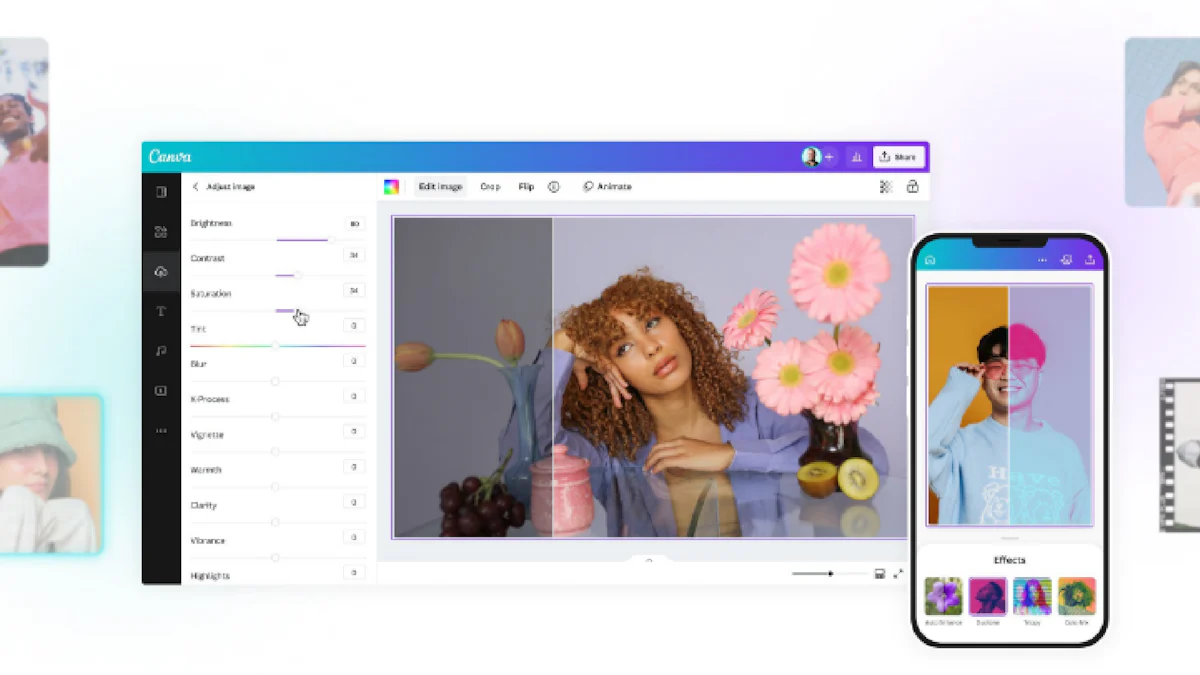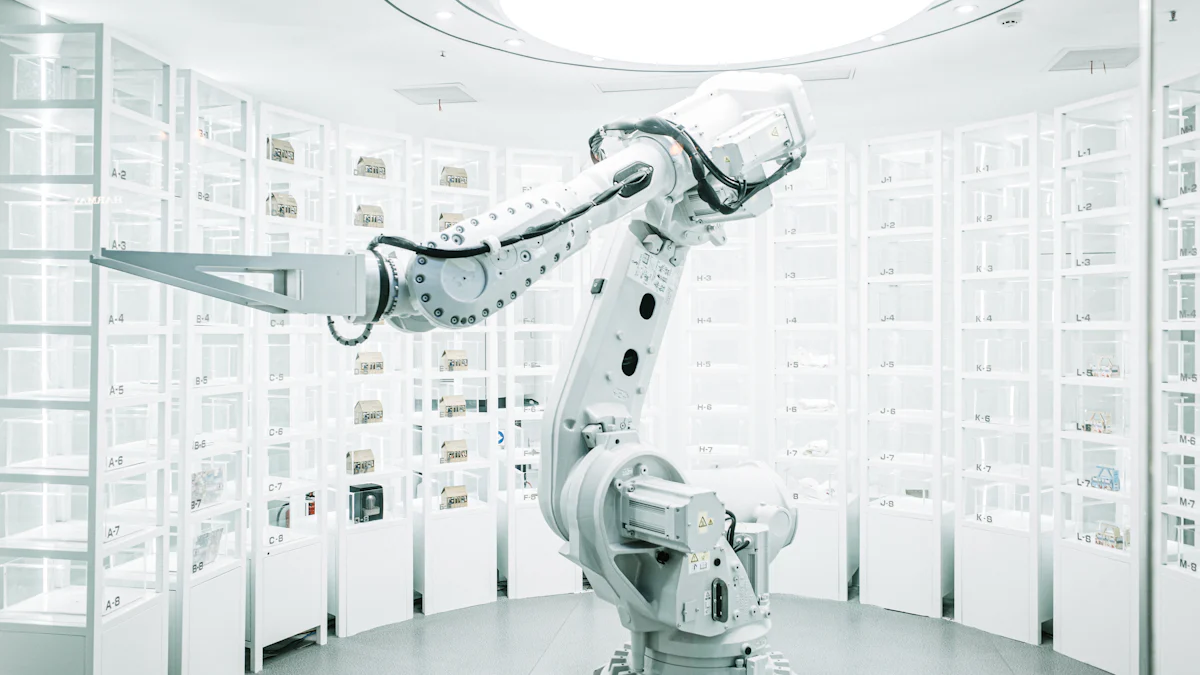The Future of Virtual Labs with Generative AI

Virtual labs, powered by generative AI, revolutionize how you engage with educational content. These labs offer a dynamic environment where you can experiment and learn without the constraints of physical space. Generative AI enhances this experience by creating interactive simulations tailored to your learning needs. In modern education, AI plays a crucial role by automating tasks and providing personalized feedback, allowing educators to focus on teaching. As you explore the Future of Virtual Labs, consider how these innovations will shape your learning journey and prepare you for an AI-driven world.
Current Applications of Generative AI in Virtual Labs

Enhancing Learning Experiences
Generative AI transforms how you learn by creating personalized and interactive educational experiences. This technology adapts to your learning style, making education more engaging and effective.
Personalized Learning Paths
Generative AI crafts learning paths tailored to your unique needs. It analyzes your strengths and weaknesses, then adjusts the curriculum accordingly. This approach ensures that you receive the right level of challenge and support, enhancing your understanding of complex subjects. For example, in STEM education, AI can guide you through problem-solving practices, helping you tackle real-world challenges with confidence.
Interactive Simulations
Interactive simulations bring abstract concepts to life. With generative AI, you can manipulate variables and observe outcomes in a virtual environment. This hands-on approach deepens your comprehension and retention of information. In engineering education, AI-assisted simulations allow you to experiment with different scenarios, fostering a deeper understanding of the subject matter.
Streamlining Research and Development
Generative AI not only enhances learning but also revolutionizes research and development processes. It automates tasks, allowing you to focus on innovation and discovery.
Automated Experimentation
AI-driven automation streamlines experimentation. You can conduct multiple experiments simultaneously, saving time and resources. This efficiency accelerates the pace of research, enabling you to explore new ideas and solutions more rapidly. In science and engineering domains, AI facilitates authentic problem-solving practices, enhancing outcomes and fostering innovation.
Data Analysis and Interpretation
Generative AI excels at analyzing and interpreting data. It processes vast amounts of information quickly, providing you with valuable insights. This capability is crucial in research, where data-driven decisions lead to breakthroughs. By leveraging AI, you can make informed choices, driving progress in your field of study.
Incorporating generative AI into virtual labs not only enhances your learning experience but also empowers you to contribute to advancements in research and development. As you engage with these technologies, you gain the skills and knowledge needed to thrive in an AI-driven world.
Benefits of Integrating Generative AI in Education
Accessibility and Inclusivity
Generative AI opens doors to education for everyone. It breaks down barriers, making learning accessible to all, regardless of location or ability.
Remote Learning Opportunities
With generative AI, you can learn from anywhere. Virtual labs powered by AI provide a platform where you can access educational resources without being physically present. This flexibility allows you to balance learning with other commitments. You can engage with interactive simulations and experiments from the comfort of your home. This approach ensures that education reaches you, no matter where you are.
Support for Diverse Learning Needs
Generative AI caters to diverse learning needs. It adapts to your learning style, offering personalized content that suits you best. Whether you need more visual aids or prefer hands-on activities, AI adjusts the material accordingly. This customization supports students with different abilities and learning preferences, ensuring that everyone receives the education they deserve.
Efficiency and Cost-Effectiveness
Integrating generative AI in education not only enhances learning but also optimizes resources and reduces costs.
Resource Optimization
AI streamlines educational processes. It automates administrative tasks, freeing up time for educators to focus on teaching. By analyzing student performance, AI identifies areas where you excel and where you need improvement. This targeted approach ensures that resources are used efficiently, providing you with the support you need to succeed.
Reduced Operational Costs
Generative AI reduces operational costs in education. By automating tasks and optimizing resources, institutions can save money. These savings can be redirected to improve educational facilities and resources. As a result, you benefit from a better learning environment without the burden of increased tuition fees.
Incorporating generative AI into education makes learning more accessible, inclusive, and efficient. It empowers you to learn at your own pace and according to your needs, preparing you for a future where AI plays a significant role.
Ethical Challenges and Considerations
Data Privacy Concerns
In the realm of virtual labs, data privacy stands as a significant concern. As you engage with these technologies, your personal information becomes part of the system. Protecting this data is crucial to maintaining trust and ensuring a safe learning environment.
Student Data Protection
Your data deserves protection. Educational institutions must implement robust security measures to safeguard your information. This includes encrypting data and restricting access to authorized personnel only. By prioritizing data protection, institutions can prevent unauthorized access and potential misuse of your personal information.
Consent and Transparency
Transparency in data usage is essential. You should know how your data is collected, stored, and used. Institutions must obtain your consent before gathering any personal information. Clear communication about data practices fosters trust and empowers you to make informed decisions about your privacy.
Bias and Fairness in AI Models
Generative AI models can inadvertently perpetuate biases present in their training data. Addressing these biases is vital to ensure fair and equitable educational experiences for all students.
Addressing Algorithmic Bias
Algorithmic bias can skew results and reinforce stereotypes. To combat this, developers must actively identify and rectify biases within AI models. By doing so, they can create more accurate and impartial systems. This effort ensures that AI tools provide fair opportunities for everyone, regardless of background or identity.
Ensuring Equitable Access
Equitable access to AI-driven education is a fundamental goal. You should have the same opportunities to benefit from generative AI, regardless of your circumstances. Institutions must strive to eliminate barriers that prevent certain groups from accessing these technologies. By promoting inclusivity, they can create a more just and balanced educational landscape.
"Generative AI in teaching and learning may perpetuate inequities if biases are not removed or addressed." This highlights the importance of ethical considerations in AI integration.
By addressing these ethical challenges, educators and developers can harness the full potential of generative AI while ensuring that it serves as a force for good in education.
Future of Virtual Labs with Generative AI

The future of virtual labs holds immense potential as generative AI continues to evolve. This technology promises to transform educational landscapes, offering new ways to learn and explore.
Advancements in AI Technology
Improved AI Algorithms
Generative AI algorithms are becoming more sophisticated. These improvements allow you to experience more accurate and realistic simulations in virtual labs. Enhanced algorithms can process data faster and provide more precise feedback, making your learning experience richer and more engaging. As AI technology advances, you will benefit from simulations that closely mimic real-world scenarios, helping you understand complex concepts with ease.
Integration with Emerging Technologies
Emerging technologies like virtual reality (VR) and augmented reality (AR) are integrating with generative AI to create immersive learning environments. You can interact with 3D models and virtual avatars, making your educational journey more interactive and enjoyable. This integration allows you to visualize abstract ideas and experiment in a safe, controlled setting. As these technologies converge, the future of virtual labs will offer you unprecedented opportunities to explore and learn.
Long-term Impact on Education Systems
Shifts in Teaching Methodologies
Generative AI is reshaping how educators approach teaching. Traditional methods are giving way to more dynamic and personalized strategies. You will experience a shift towards student-centered learning, where AI tailors content to your individual needs. This approach encourages active participation and fosters critical thinking skills. Educators can focus on guiding you through complex problem-solving tasks, enhancing your ability to apply knowledge in real-world situations.
Preparing Students for AI-driven Futures
As AI becomes more prevalent, preparing for an AI-driven future is crucial. Virtual labs equipped with generative AI help you develop essential skills such as analysis, strategy, and critical thinking. These skills are vital in navigating the challenges and opportunities of an AI-dominated world. By engaging with AI-powered tools, you gain hands-on experience that prepares you for future careers in various fields. The future of virtual labs ensures that you are well-equipped to thrive in an ever-evolving technological landscape.
"AI platforms, including generative AI, are rapidly changing teaching and learning opportunities," notes a study from Stanford University. This transformation highlights the importance of adapting to new educational paradigms.
In conclusion, the future of virtual labs with generative AI is bright and full of possibilities. As technology advances, you will have access to more personalized, immersive, and effective learning experiences. Embracing these innovations will empower you to succeed in an AI-driven world.
In this exploration of virtual labs with generative AI, you have seen how AI transforms education by enhancing learning experiences and streamlining research. Generative AI offers personalized learning paths and interactive simulations, making education more engaging and effective. However, responsible and ethical use of AI is crucial. You must prioritize data privacy and address biases to ensure equitable access for all students. As AI reshapes the educational landscape, educators and policymakers should embrace these advancements. By doing so, you can empower learners to thrive in an AI-driven world, fostering critical thinking and adaptability.
See Also
The Impact of Generative AI on Educational Content Development
Generative AI's Influence on Virtual Reality Immersions
Leveraging Generative AI for Scientific Research Advancements
